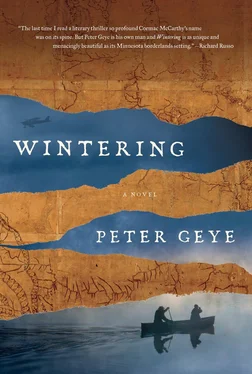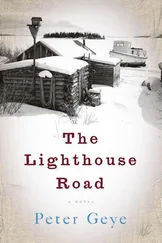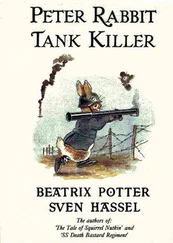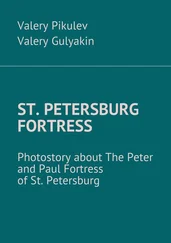He gestured at the book of maps sitting on the table between our coffee cups. “Where my father was going — where we were going—”
I picked up the book and listened as he continued his story.
“You’ve come a long way,” Harry said, “without asking to see the maps. Here, have a look.” He handed the book of maps to him. “Turn to chart sixteen.”
This showed the Balsam River fanning into a glut of thirty or forty unnamed islands. They, in turn, spread to a vast lake called Kaseiganagah. He studied the map for a moment and then glanced at his father, who was staring down on him.
“You see?” Harry said.
Gus said nothing, just turned the page to chart seventeen, which was devoted to the western half of Kaseiganagah. Along the south shore another fifty islands were marked, each shoreline more jagged than the one before. Sketched in the corner of the chart a snarling bear reared up, its paw swatting the air. The words Îles des Chasseurs crawled along the northern edge of the lake in beautiful looping calligraphy.
“What’s Chasseurs?” Gus asked.
“Turn the page. Keep looking.”
Again Gus did as he was told, pausing for a minute or two to study each of the maps. They grew increasingly more vague until he got to chart twenty-four. Holy Lake. It had almost no detail but for a house on the shore of a northern bay marked Fort le Croix. In the corner, instead of a bear, a single man in a canoe was paddling through the rain.
Gus turned the final page. Chart twenty-five was drawn to an entirely different scale and covered what must have been fifty miles of broadening lakes and rivers, none of them named. No compass rose, no arrow pointing north. No sketches, only the words L’EXTRÉMITÉ—TROP LOIN, written not in a script like Îles des Chasseurs or Fort le Croix but in bold block letters. Ominous letters.
“Find the fort before twenty-five, eh?” Harry said.
“Fort le Croix?” Gus said.
“Home sweet home,” Harry said.
Gus flipped through the maps again. “I still don’t understand. Every place is certainly somewhere.”
“Now you sound like a philosopher. Or Pastor Nils.”
Harry stood and went to the coffeepot still sitting on a rock near the fire. He removed his handkerchief from his trouser pocket and dumped the grounds into it, wrapped them up, and cinched the cloth with a piece of twine. He stowed the coffee in the food pack and rinsed the pot on the shore, then filled it again and brought it over to douse the last glowing embers of the fire.
“You’re wondering the right things, bud,” he said. “I’m wondering them myself.” He packed the coffeepot and stood at his canoe. “Fort le Croix? The miles between here and there? The season ahead? It’s all out there, there’s no doubt of that.” He looked out at the lake and then he turned his gaze on the sky in the south. He seemed ready to say more for a long time before finally adding, “And maybe there’s more than that. Likely there is. If not now, then en route.” He used a hand to block the sunlight. “En route, indeed.”
He stepped into his canoe and backstroked twice and waited for Gus ten feet offshore. When he, too, was on the water, Harry pinched a wad of snoose into his cheek and tossed him the sack, so Gus took a dip himself. Harry spit on the water and said, “Our concern now is crossing those miles. It’s finding the fort. It’s getting settled in before winter does.” He worked the tobacco in his cheek and spit again. “All those boys before us did it. We can, too.”
When Gus didn’t answer, Harry said, “You bet we will.”
—
“Even now I recall that afternoon clearly,” Gus said. “We paddled around the islands on Burnt Wood Lake and into her northeastern bays, my father singing all the while. It was warm enough that I took my shirt off for an hour after lunch.” He looked across the great room at the map above the mantel. “It was, of all our days up there, among the finest. All of which ought to have made my father’s lying less forgivable.” Now he turned to me. “But instead of looking back in anger, I’ve decided I owe my father a kind of thanks that isn’t often required nowadays.” He pointed over at the map. “On this scaled-down version of Thompson’s Northwest Territory, our time on the border traveled only inches in a world six feet wide. All those unseen lakes and rivers? A thousand miles north? A thousand west? They weren’t meant for us. But those miles we did travel, my father’s apocryphal fort? They taught me more — about myself, about him, about loyalty and love — than I’ve ever learned since. No doubt about it.
“My father did lie to me. There’s no denying that. But there was also — in his lie — a kind of truth that honesty could never have conveyed.”
“What does that mean?” I was now the one to ask. They were the first words I’d spoken in what seemed an hour.
Gus sat back down across the table from me. “I told my wife the same story last night. When she asked what my father taught me, I told her I couldn’t put it into words. But then I lay awake watching the snow fall outside and came up with this: how brave a thing it was for him to try to rediscover something, even if it was only himself, not a continent.”
That sounded just right, and I smiled, if not actually, then to myself. But when I looked up Gus’s gaze was fierce.
“There’s this, too, though I didn’t say it to Sarah: I thought how wise he was to lure his rival out into the woods, where every fight’s fair.”
My eyes must have widened, because Gus looked at me even more fiercely and said, “I told you you didn’t know the whole story.”
BUT GUS DIDN’T KNOW the whole story, either. Who ever does?
After our second morning together I could already see that the story he was telling — to explain a man we both dearly loved — was lacking a few things Gus didn’t know. Things that I did know but couldn’t speak of. I’m talking about what happened many years ago to his grandfather, Odd Einar Eide, which I saw firsthand and understood better than anyone. It still stuns me, almost sixty years later, to think of it. But even more than Odd’s story, I was thinking about Rebekah Grimm and the shadow she cast over Harry’s life. And so over Gus’s, too. Secreting my knowledge felt like a betrayal, like I was sending Gus out into the woods to hunt bear with a slingshot when behind my back I held his father’s trusty Remington, oiled and loaded and sighted true. But about Rebekah I simply didn’t know where to begin. I knew that anything I said, any expression of sympathy or fondness, would be met with doubt. In fact, it would be met with a religious certainty to the contrary. This sort of thinking was as ingrained in Gus as it had been in his father, and nothing I might say would discourage it. Just as nothing I ever told Harry changed his thinking. Not about Rebekah. Not one inch.
Harry came by his grievances against Rebekah honestly, I’ll give him that. He rarely spoke of his father, whom he adored and admired and knew as well as a person can know someone else. Harry would never share that man with anyone. But of his mother — whom he scorned and knew not at all — he spoke often.
I heard, as everyone had, that Rebekah abandoned Odd in Duluth when Harry was little more than a newborn. Just up and left one summer morning. She ferried herself back to Gunflint and took her place next to Hosea Grimm like he was a prophet and she a hapless disciple of his foolishness. Meanwhile, Odd settled his own affairs in Duluth, packed a box of baby formula, swaddled his boy, and carried him aboard a boat named after his mother. Once the two of them motored home, he set up shop in the fish house, and carved out a living tossing nets and building boats.
Читать дальше












